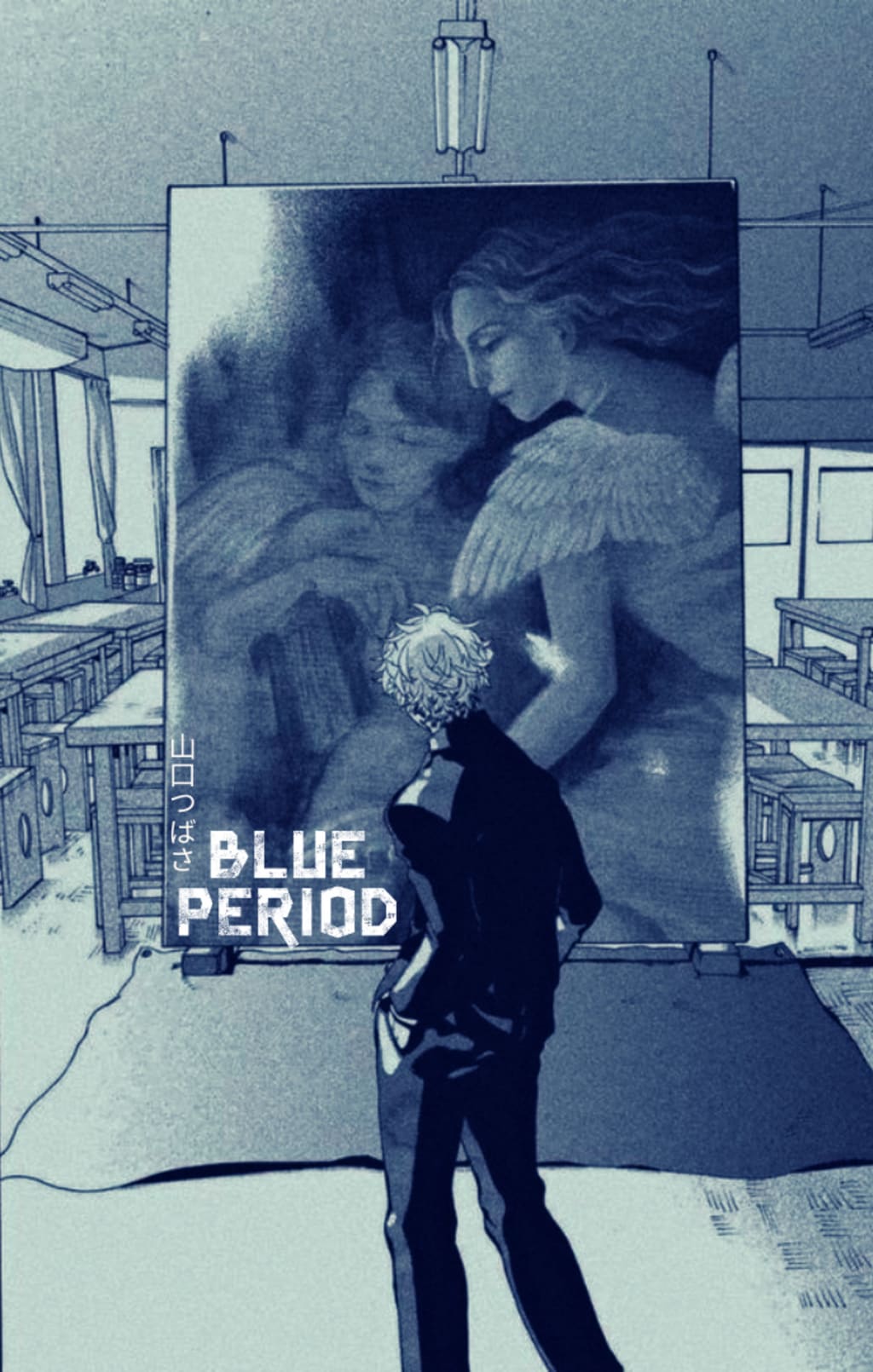
Blue Period by Tsubasa Yamaguchi is a story about passion and pain. It follows Yatora Yaguchi a high school senior who's both popular and has the grades to get into any university he chooses, yet he's unfulfilled. Until he jumps into the beautiful yet unrelenting world of art after finding inspiration in a painting and (like so many coming-of-age stories) finds his passion.
If you're an artist in any form it's hard not to relate to Yaguchi's struggles and realisations. The trigger for the metamorphosis within him to follow his secret desire to do art is a painting by one of his seniors "Mori-senpai," in the art club. When observing her work he says:
I'm jealous of your talent.
An innocent gesture meant to praise her, however, she replies with:
Thanks for the compliment, but…I actually put in the work to study art and art-making methods. Haphazardly calling this my "talent" is like saying I didn't do anything to achieve this…
What makes this hard-hitting is that Yaguchi himself is an academically high-achieving delinquent and sees art as simply a 'gift.' While Yaguchi himself does not associate his own intelligence and good grades with him being a gifted genius but instead a "hard worker." This mirrors Mori's dismissal of being called talented, but he doesn't see how hypocritical his view is.
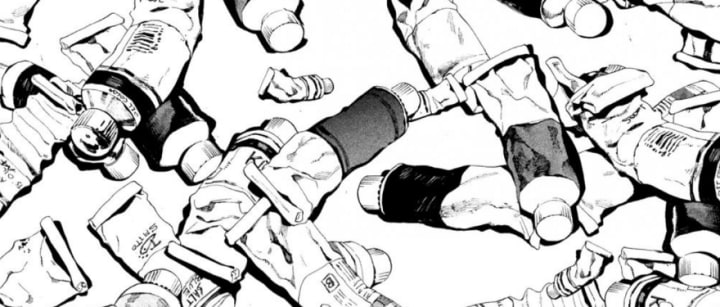
What is talent?
"Talent" is described as "natural aptitude or skill." The natural endowments of a person, the skills that they were born with instead of learnt.
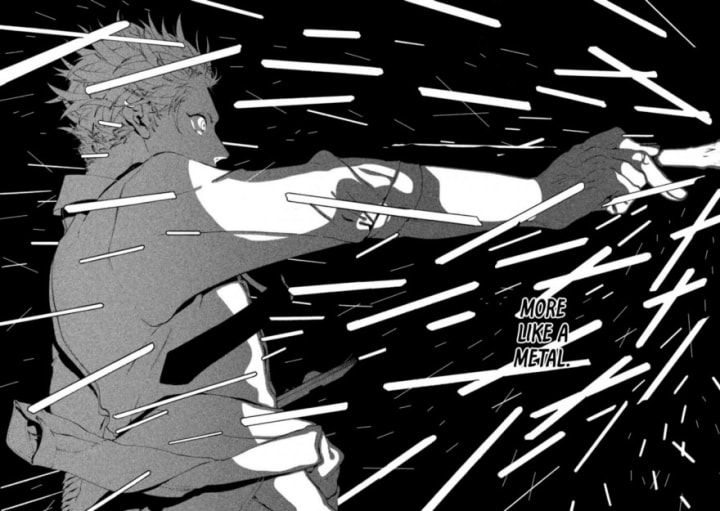
In the case of both Yaguchi and Mori-senpai, they don't want their hard work to be discounted and disregarded as a natural gift. Yaguchi at the beginning of the story shares the view that those "who take elective art are a bunch of slackers." Yaguchi most likely finds it hard to accept art as valuable because, unlike the S.T.E.M subjects he excels in, "art is less about being correct, and more about how you feel." In maths 2+2 = 4, but in art, it's completely subjective depending on one's own preferences. What you see as blue, someone else may see as violet. How art makes you feel will be different and that's if it makes you feel anything.

Passion is Pain
As the title suggests "Blue Period," is likely a reference to Picasso's blue period between 1901 and 1904 when he painted essentially monochromatic paintings in shades of blue, representing his depressive mentality and the themes of loneliness, poverty, melancholy, and even death. Tsubasa similarly captures the melancholy tones of a young adult beginning to embrace his true self with the high risk of failure and rejection.
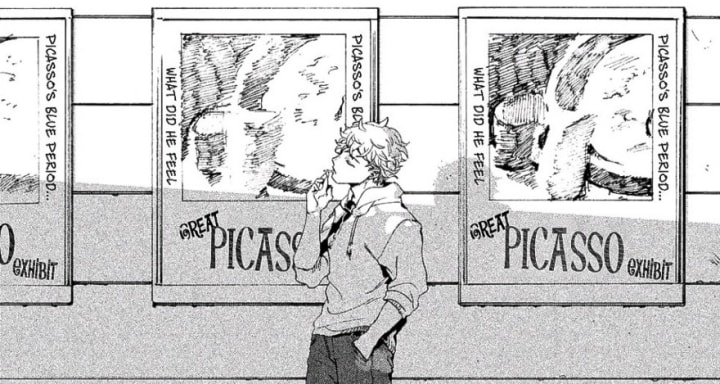
Even though Yaguchi doesn't possess raw artistic talent, he is very analytical, strategic, self-reflective and what's more persistent. His unique approach to understanding art is what allows him to improve so quickly. His drive to be the best is also what drives him to his limit.
After some time debating whether he should really go all in for his newfound passion, or take the safe route academically. He ultimately chooses art, throwing himself into the deep end in an attempt to catch up to his classmates after finding out how low the acceptance rate is for Tokyo art schools. He spends sleepless nights creating hundreds of artworks in order to build his skill, it consumes him.
As he keeps getting recognition and critiques, he keeps pushing harder and harder trying to get better and better. Being brought to tears on multiple occasions [Yaguchi] has breakdowns, breaks out in rashes and collapses because of the stress he puts on himself to prove his passion is worthy, not just for himself but for society. To prove to those that think like the old him that improvement comes at a cost and art isn't easy.

Yaguchi has so much passion for something he loves, so much that it hurts when there is no value in it, or it goes unnoticed. Thus Yaguchi puts his own mind, body and soul into his art. Love is like the extremes of all emotions, when applying this to your passion there is so much happiness, fear, excitement and sadness associated with it that it can hurt. Because doing something to the best of your ability and still not being good at it, hurts. Being proud of yourself just for no one to see it, hurts.
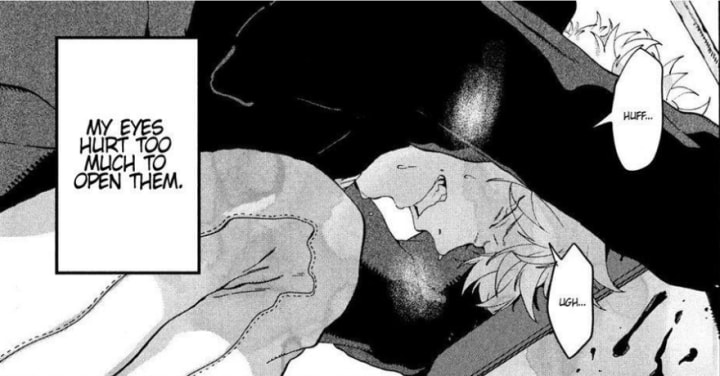
Burnout
Pushing himself to mental and physical exhaustion in order to succeed is common among many creatives and is known as "creative burnout." Creative burnout is the feeling that you've drained all of your creativity, and there is nothing left. You dread starting work, feel tired and stressed all the time and suspect you'll never be able to create something good ever again.
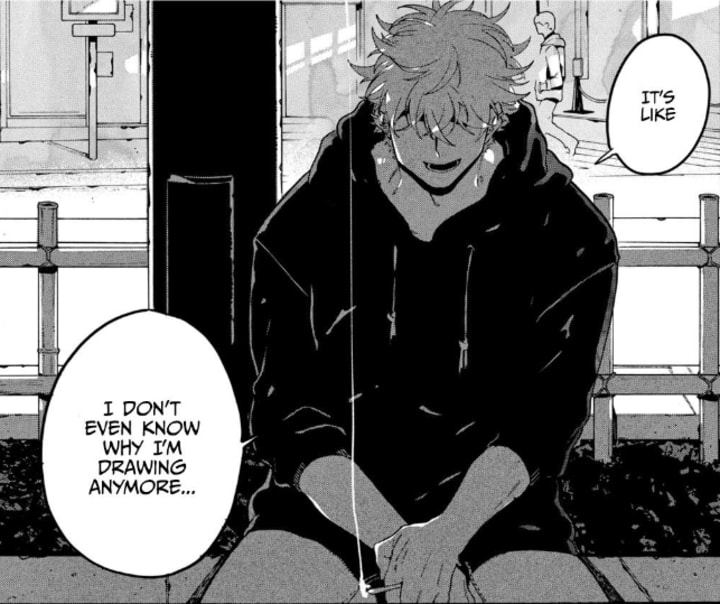
Talent is Hard Work
Realising how much hard work it takes to get into art school, Yaguchi signs up for an art cram school in order to prepare for the art entrance exams. Despite feeling slightly intimidated, he is excited. However, when it comes time to look at the other student's artwork he feels:
A silent cry lash from within him.
He sees what a true "genius" is in the work of his classmate Takahashi, which he expresses is "perfect." His thinking throughout the entire story has been that because he works harder than most people and that is the reason he has gotten where he is, but now it turns out he's "just a normal human." This realisation shakes Yaguchi to his core.
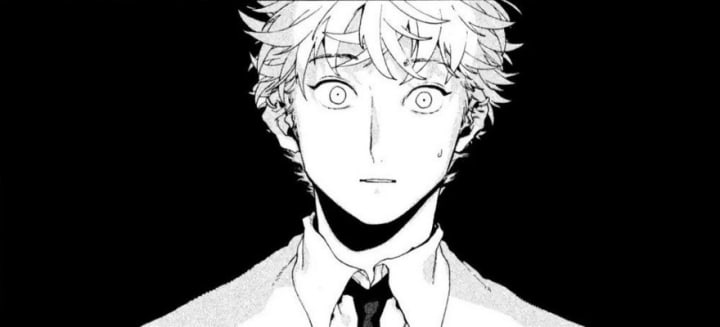
True Passion
Every piece of artwork seen within the manga is made by a real artist, all cited at the end of each chapter. This isn't just a story about passion for art, it's grounded in true love and respect for art. The reader joins Yaguchi's journey, Tsubasa teaching the audience artist techniques and how to effectively use them before seeing them utilised by Yaguchi. In essence, Blue Period is an artist making art about an artist making art.
Even Yaguchi's classmates acknowledge that "He's not exactly skilled, but his drive is quite something."
Blue period challenges the notion that one's passion is meant to be a hobby, something secondary to your career. By following your passion you are betraying society because instead of buying into someone else's dreams, you are making your dreams happen. The audience can see the growth of Yaguchi with him letting go of the expectations of his mother and teachers. Even when his teacher still questions his choice to follow art, Yaguchi is firm and unafraid of his path.
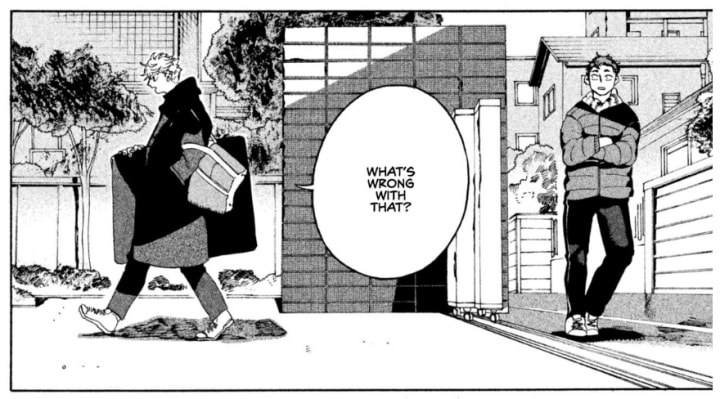
Relationship with Passion
A relationship with passion is also reliant on your relationships with those around you. In the art club and cram school during the start of Yaguchi's journey, he is surrounded by individuals that share his work ethic and passion for art. Even the people in his life that don't understand art, recognize his hard work.
Blue Period also expresses various views from the art students themselves. Takahashi Yotasuke doesn't have many friends and believes art is all he has, Hashi Haruka has a fetish for art, Kuwana Maki feels pressure to be better than her top-scoring older sister, and Ayukawa Ryuji is struggling with identity and how others see them.
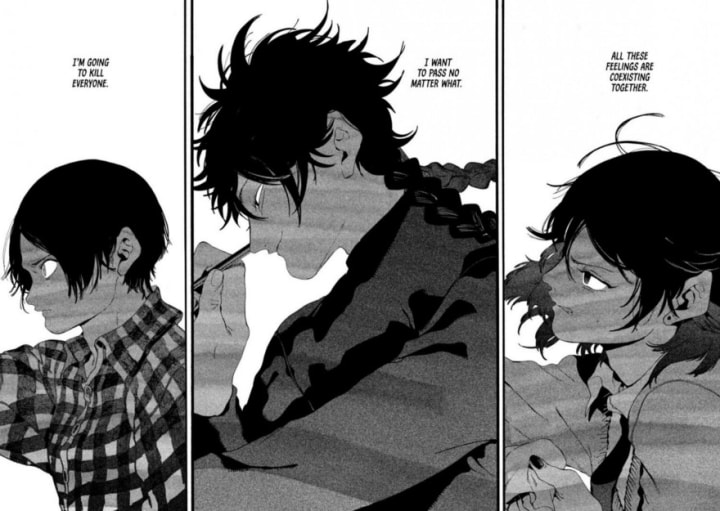
The Lesson
Yaguchi's sensei, Mrs Saeki says it best:
When hard workers get to do the thing they love, they're unstoppable.
Without realising it Blue Period was the reason that my final year of high school turned out the way it did. The reason I picked the subjects I did and didn't let the future worry me. I, like Yaguchi, chose my passions over the S.T.E.M-focused path of unfulfillment I was on. Don't get me wrong I love science (especially biology) and learning, but I hated all the expectations. Maths and chemistry class were destroying my drive, my passion and in order to keep the spark alive, I chose to do what I love and forget about what others "expected" of me.
Blue Period isn't just a story about art, it's a story about passion and the fears of losing everything in order to follow that passion, but pleasantly finding out you gain so much more.
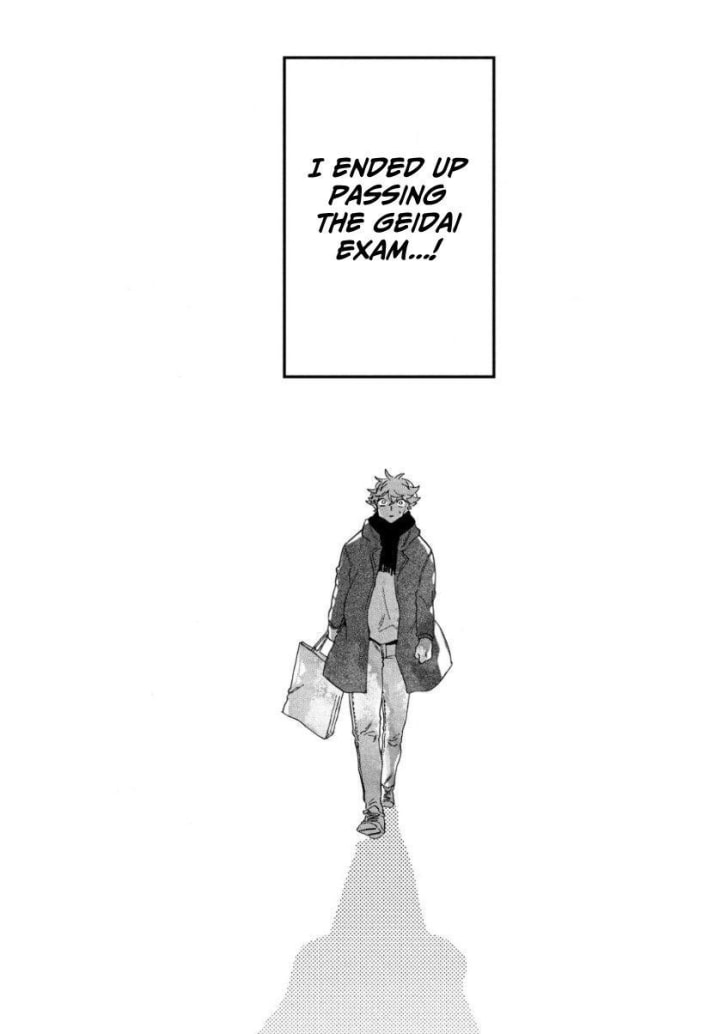

*DISCLAIMER: All images are from the English translation of the Blue Period manga and belong to their respective creators
About the Creator
K. Ross
I write articles about human experiences with a keen interest in art, psychology and society. I post about once a month.
Reader insights
Nice work
Very well written. Keep up the good work!
Top insights
Eye opening
Niche topic & fresh perspectives
Heartfelt and relatable
The story invoked strong personal emotions
On-point and relevant
Writing reflected the title & theme
Compelling and original writing
Creative use of language & vocab
Easy to read and follow
Well-structured & engaging content






Comments
There are no comments for this story
Be the first to respond and start the conversation.